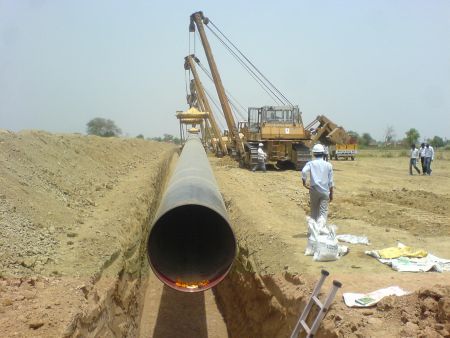
The two main Bakken pipeline markets weakened for the seventh time since April 30, bringing differentials to their lowest levels of the year.
Bakken crude oil prices fell across the board on Friday, as high stocks in Canada drove down differentials for both heavy and light grades.
Williston Basin Bakken fell 10 cents/barrel, while Bakken at Guernsey and at Clearbrook were assessed down $1.05/b at the calendar month average of NYMEX light sweet crude (WTI CMA 1st month) minus $5/b and WTI CMA minus $7/b, respectively.
After rising slightly on April 29, the pipeline markets have fallen by $3.50/b over the past week and a half, bringing each to their largest discount since December 31 when Guernsey hit minus $7.10 and Clearbrook hit minus $9/b.
"Bakken weakness at Clearbrook is a reflection of train disruptions causing oil to tend back to the more reliable markets (pipelines), parity in pricing, and the collapse of the LLS market as a destination for train barrels," one trader said. "Now there are really only two viable train markets: East Coast and West Coast."
A train carrying crude oil from the Bakken to a storage facility on the East Coast derailed near Lynchburg, Virginia, on April 30, but market sources said in the days following that prices did not appear to be reacting to the news.
The US Department of Transportation on Wednesday issued an emergency order requiring companies to identify any rail routes they intended to use to ship Bakken crude.
But market sources said neither the derailment nor the DOT announcement should be viewed as the start of a shift from crude-by-rail shipments.
A second trader said the shift to pipelines began before either the Virginia incident or the agency's new policy.
Enbridge Energy Partners said in an earnings statement the day after the derailment that it saw volumes on its North Dakota pipeline system rise 22% year-over-year in the first quarter to 245,000 b/d.
Some of that could be attributed a severe winter in much of the US. Rail shipper Global Partners on Thursday said the harsh winter increased its costs and complicated rail transportation throughout the US.
Still, traders said they expect to see some more movement toward pipelines in response to uncertainty in the rail market.
"I think that continued movement toward pipe will continue to bring that pricing down," the second trader said.
Source: Platts
We use cookies to improve your experience. By continuing to use our site, you accept our Cookies, Privacy Policy,Terms and Conditions. Close X